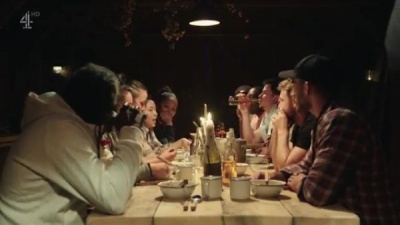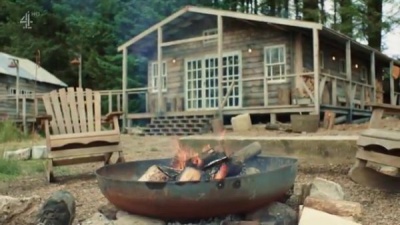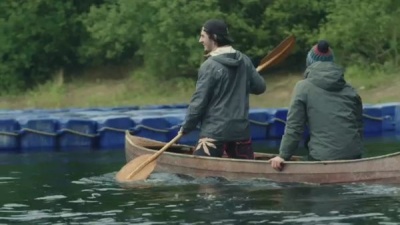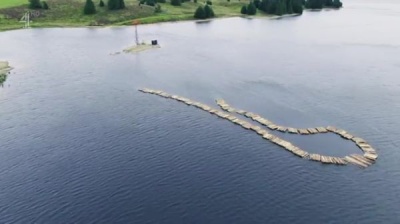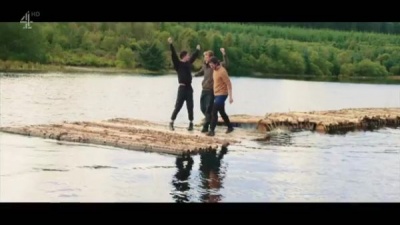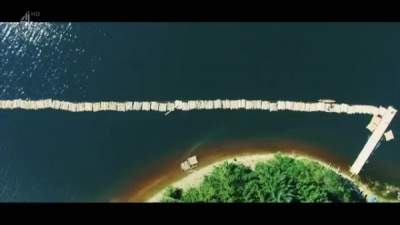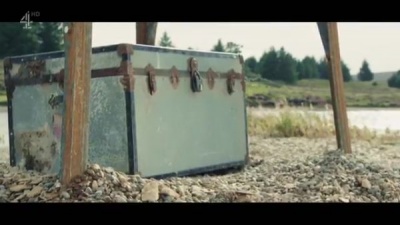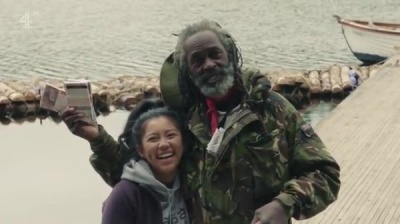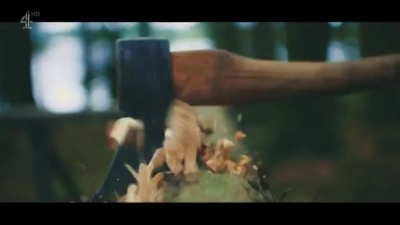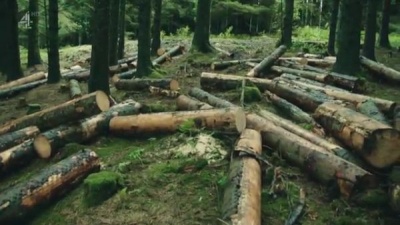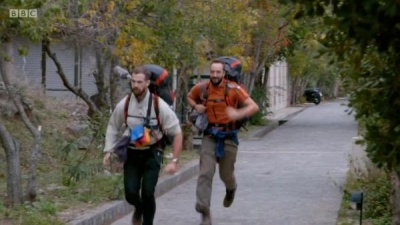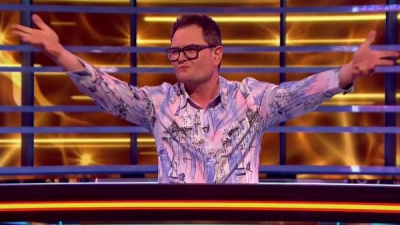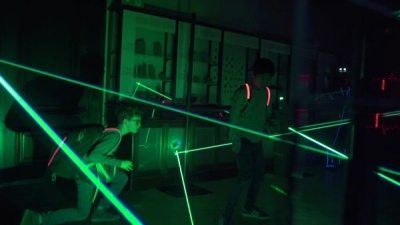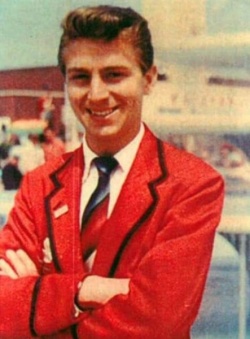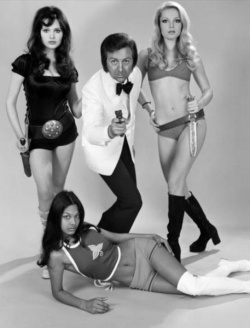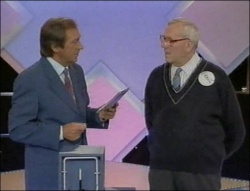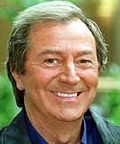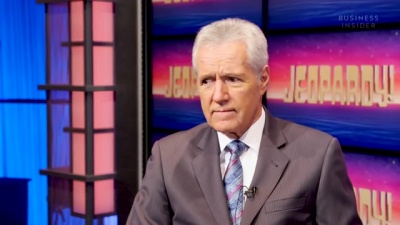Weaver's Week 2020-11-22
Last week | Weaver's Week Index | Next week
In a packed Week, we're applying lessons from drama theory to television. We pay tribute to the late Des O'Connor, and run the rule over nominees for the Eurovision Rose d'Or awards.
Contents |
Wilderness (Working Title)
Workerbee (an EndemolShine Banijay Company) for Channel 4, 11 October – 2 November
These twelve people have gathered at a cabin in Wales. There's a prize of £100,000 up for grabs. To win the money, they'll have to work together as a team. But round by round, they'll lose the player – no! That was last time!
The team don't know what they've got to do in order to win the money. The contestant call didn't explain what the challenge was, only that the contestants could win up to £100,000 (€110 000). It's one for "outgoing" people, applicants were promised "plenty of twists and turns". And it's not Survivor.
The truth is: they've got to build a bridge to an island containing a large pile of money. It's "850 feet" (about 280m) long, though the route is mostly about twenty metres offshore. There's a time limit, only twenty days to get from the start to the finish. The team has been given an imperial load of wood, and 5 miles (8km) of rope. {1}
Now, if you've tuned in for helpful tips on how to actually build a bridge, you're watching the wrong show. This ain't a programme for lumberjacks. The chance of a crossover with SKYTV's The Chop is approximately zero. The number of minutes given over to the specific construction methods across the series is approximately zero. The Bridge doesn't want you to try this at home, and don't give enough instructions to do it at home.
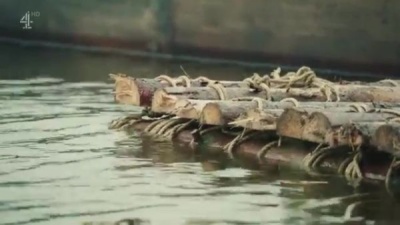 The construction: floatable platforms. Lash lots of logs together with rope, drag them out to position.
The construction: floatable platforms. Lash lots of logs together with rope, drag them out to position.
After setting the scene, episode 1 has a distinct tone: "young people are awful". They talk a lot about how one of the contestants is a professional stripper, how another is the daughter of a television chat show personality. By episode 2, all of these outside world distinctions have been forgotten, the narration judges people on how they present in the confined little world. They've also stopped talking about how young people are awful, allowing and encouraging the viewer to forget the emotions from the first episode. That's a choice, we find it entirely patronising. Not all viewers have a memory like a goldfish.
"...but will it float?"
Every so often, the producers throw a spanner into the works. "You've got to have a leader", they claim. The possibility of an anarchist structure is ruled out, and ruled out only for the producers' convenience. "You've got to send two people off on an overnight mission", they claim. Not because this is going to help the group, but because it provides a useful cliffhanger to end the episode.
A good drama will show, not tell. The Bridge leaves a lot of the hard work to its narrator, James McAvoy. The producers can be forgiven for not showing the bridge snap in half – it happened overnight, in the dark. But to ignore the floaters is less excusable. The floaters? Let us explain.
The team was provided with a large number of empty plastic containers, which are light and hold a lot of air: they're made to be buoyant. When put beneath the wooden platforms, they help the wood to float. The team didn't realise these things existed until day four, which is their problem. But we viewers were not told about the floaters until just before they were found, which feels more than a little misleading. The producers never missed a chance to tell us about the overall aim, yet kept this salient fact from us for over an episode.
It quickly becomes clear that the team's best option is to ignore the messages from the producers, because they never help the construction. Money is pilfered from the prize fund. Lies are mandated. New arrivals come in, and are told "to make room in the camp, someone must leave". It's a horrible way to reinforce the racist's stereotype of "we're full", made abhorrently clear when two white people eject a woman of colour.
Severn problems
Episode 3 began with this display of casual racism. Except it didn't; episode 3 began, like all the other episodes, with the same two minute narration explaining what would happen on the show. Such introductory spiels have been the fashion amongst show-makers for a few years, and they absolutely suck.
Prolix opening narrations are literally a waste of time. The Bridge runs for five episodes, a smidgeon under four hours. You've got to provide five sets of closing credits, link into and out of fifteen ad breaks, and four "next week" trailers. Boom, that's 4% of your running time taken up with the necessities of commercial television. Must you squander another 4% on an over-long start to each show? Evidently they must. They could sell the show through 20 seconds of fast-cut footage set to theme music, but choose not to. It's a choice, and this column finds it insulting.
The group failed to manage their rations well, and run out of food halfway through. The majority of the team votes to take a day off and stop work; those who decided not to take the offered feast were prohibited from working. This problem was not mentioned again, did the producers provide additional rations? Was the claim that "you have enough rations" accurate, or another piece of disinformation from the producers? Even as this thought crossed our mind, we knew The Bridge was in deep trouble.
Stick or twist
Drama people talk about the Bechdel Test: is there a conversation between two named women that isn't about a man? Here on The Bridge, we might apply a similar Bridge Building Test: is there actual discussion of the construction and maintenance of the titular bridge? Episode 3 failed the Bridge Building Test, which is quite a remarkable feat for a show that's literally about building a bridge. Less than one minute of construction, and a few feelings that the bridge might be unsafe. Again, was that artificial, was that put in the contestants' mouth by the producers?
As the series progresses, it becomes clear that building the bridge is a framing device, an excuse for the producers to make the show they want to make. Every single episode ends on a cliffhanger imposed by the producers. Four days are completely elided from the production: are we to believe that nothing interesting happened? Or did the events not fit with the stories the producers wanted to tell? We'll never know.
The Bridge had its signature motif. Above the cash box is a tower, on top of the tower is a light, the light pulses. The soundtrack delivers a particular drumbeat every time the light pulses. There is a soundtrack, music to match the mood of the moment – or the mood conveyed by the narration.
The final two episodes were a mixture of frantic construction, plotting who will win the money, more frantic construction, an attempted military coup forced by the producers, and more stuff imposed to meet the producers' agenda. Narration built up one character: under the rules of television drama, we just knew he was heading for a fall. According to the show, the team made it to the island with one minute to spare. That's awfully convenient to manufacture tension.
Yes, they do reach the money. Yes, they do decide on someone to win it. Yes, she decides to split it according to the producers' wishes: equally with just one of the other contestants.
Cantilever an interesting show
We've got a lot of problems with The Bridge. The worst of all, it was dull television. Boring. Tepid, insipid, zeebsome. Predictable. We watch game shows and challenge shows because we're interested in the outcome, we want to know if the team will succeed or fail. There has to be some element of jeopardy, and The Bridge lacked jeopardy.
There were only two possible outcomes to the series: either the team would complete the task in the nick of time, or they'd fail in a ludicrous and entertaining way. And if they're going to fail, they'd need to change the whole tenor of the series, it would have to be a much lighter show. We would have needed the wry commentary of Bernard Falk on Now Get Out of That; we got a gravel voice narration, sonorously repeating the points they wanted us to remember.
After about half of the first episode, we could rule out the Hopeless Failures path, so it had to be the Last Minute Success story. The next four episodes played out with a grim and tedious inevitability. Only the name of the winner was a mystery.
There were some big characters on The Bridge, which is a good job, because they cast for big characters. There were a lot of people who were ignored in the edit, or who suddenly rose up to prominence. Chekhov's gun has never been more in evidence: "If there's a pistol hanging on the wall, someone's got to fire it". Or if a hitherto background character is suddenly thrust into the foreground, something's going to happen to them. The Hunger Games novels are a textbook on the idea: every detail is important, nothing is wasted.
The problem with The Hunger Games, and with The Bridge, is that they overuse Chekhov's gun. There's no foreshadowing, no attempt to build up tension over a long period. The floating plastic boxes, for instance: we saw them about eight minutes into episode 2, the team discovered them about six minutes (and an ad break) later. Why did we not see them in episode 1, just glimpsed in a brief shot?
One question remains. What happened to the trees? There about 25,000 logs left lying around a lake in North Wales, we rather hope they've been tidied up and put to some sustainable use.
Ultimately, The Bridge lost us when we started to question whether the production was honest. The producers went in and knew the show they wanted to make. The contestants were sufficiently compliant to allow the producers to make their show. But the show felt predictable, the situation was too contrived, the contestants were interchangeable, and we found it a crashing bore.
{1} Seriously, what is this show's problem with the measurements people understand? "Foot" is the thing on the end of your leg, "miles" is one of the researchers.
Going for Or
Finalists in the Eurovision Rose d'Or have been announced. Here are the game show nominees.
Comedy: Secret Gameshow (Asahi Broadcasting TV Corporation/NBCUniversal Formats/ABC/Asahi) is one of six nominees. Office workers compete to win cash prizes without their colleagues finding out what they are up to. The action is captured on secret cameras and relayed to a studio audience.
Reality and Factual Entertainment: Race Across the World (Studio Lambert/BBC TWO). Teams of three travel the length of the Americas.
Studio Entertainment, where we've got five of six nominations:
Mute It (NIPPON TV). Work past obstacles and hazards without making a loud noise. From the people who brought us Silent Library.
There's Something About Movies (CPL Productions/Sky/Sky One). Alan Carr is silly in the cinema.
The Way Out (Roses Are Blue/Be Entertainment/VTM – DPG Media). Head-to-head escape room fun.
Lego Masters USA (Endemol Shine North America and Tuesday’s Child under license from The LEGO Group/Banijay Rights/FOX). Plastic building bricks make big things. Being the North American version, does not contain Tomorrow's Star Melvin Odoom.
Joko & Klaas gegen ProSieben (Beat The Channel) (Florida Entertainment/Red Arrow Studios International/ProSieben). Tough challenges at a pair of presenters, cross-selling all of Prosieben's talent. Just imagine what they could do at Television Centre.
The token non-competition nominee in this category: The Wonderbox (Capa/Newen Distribution/France 3), a revival of Noel Edmonds' Time of Your Life.
Children & Youth: Nachtraven (Nighthawks) (De Mensen/Newen Distribution/Ketnet/VRT). Teams of two spend the night in a dark labyrinth of puzzles, looking for solutions with torches, backlights and lasers. We'll have a review next week.
Innovation in the Time of Covid: Container Cup (Woestijnvis). Professional sportspeople are given tasks to complete in a shipping container: it looks like a time-trial version of Superstars.
Winners will be named on 29 November, in an online ceremony after Junior Eurovision has finished.
Des O'Connor
The showbiz veteran and entertainer died last weekend.
Des was born in Stepney on 12 January 1932 to a Jewish mother and Irish Traveller father, giving him the joke that he was the only O'Connor to be bar mitzvah. Evacuated to Northampton during the war, Des was on the books of Northampton Town FC for a time. While in the RAF, he discovered his entertainment ability. Like so many of his generation, Des was employed as a Butlin's redcoat, friendly and entertaining in equal measure. He told jokes, sang songs, and always had the popular touch.
He presented television shows for over 45 years. His early bookings were as a variety turn, a mixture of stand-up comedy, songs, sketches, jokes old and new (but mostly old), and all glued together by Des's gentle charm. He tried to break America in 1970, but preferred the comfort of Blighty.
One success of Des's transatlantic jaunt was his appearances on telly chat shows. His boss at ATV was unimpressed by the idea, perhaps scared by LWT's Frost shows, so Des took the idea to BBC2. Primetime chat show Des O'Connor Tonight held millions of viewers spellbound, as Des generously allowed his guests run rings around him. His bookings included stars of the day, and stars of the future – he gave early appearances to Kelsey Grammar, Jerry Seinfeld, Dave Letterman, Tim Vine, Jay Leno, and Mariah Carey.
Earlier in his career, Des had inflicted his own crimes against music, with a string of hit singles including the number one hit "I pretend", and the remarkable lyric of "Dick-a-dum-dum". He had a long-running comedy "feud" with Eric Morecambe, of such bad feeling that the two would regularly chat and discuss Des's suggestions of how Eric could send him up.
Des's game show career was long, though always subservient to his comedy and chat shows. He first reached our screens in Spot the Tune, where the objective is to name a tune. Quiz show For Love or Money followed in 1961, and then came a long break. He moved from the BBC to Thames in 1983, taking Des O'Connor Tonight with him. He suggested they make a version of Blind Date, only to find the idea pooh-poohed by Thames top brass.
Des found another perfect fit when Take Your Pick was revived on ITV in 1992, and ran for five years. Des always had a sharp mind and a swift wit, it always felt like he was leading the conversation in the Yes-No Interlude and inviting the contestant to make an error. Later hosts might wish to put their specs on and learn from the master. Take Your Pick also introduced Des to his fourth and final wife, Jodie Brooke Wilson.
Pot of Gold ran for two summers in the early 90s. The talent show had a sponsorship gimmick, revolving around bingo cards distributed by a national newspaper. If the total scores of the acts matched those on your card, you could win a small prize, like a Des O'Connor CD. The jackpot prize, for the total points awarded on the show, was a larger prize, like a pair of noise-cancelling headphones so you don't have to hear that Des O'Connor CD.
In 2000, Des did lottery show On the Spot, which featured a section where Des went on the street, asked questions, and gave away money. In for a penny, in for a hundred quid.
The new century saw Des make a daily chat show, Today with Des and Mel was hosted with Melanie Sykes. It ran on ITV from 2002-6, and was inspired by Live with Regis and Kathy Lee. After it was ended – effectively bumped off for the much cheaper Loose Women – Des went to Channel 4 as the third regular host of Countdown. His tenure featured excellent players including Craig Beevers, David O'Donnell, Kai Laddiman, and Alex Horne. It ended as a result of a significant cut to the show's budget, which also ended the involvement of Carol Vorderman.
Taking his cue, Des retired from regular work to enjoy a decade of retirement. A fall at his Buckinghamshire home in early November saw him admitted to hospital, where unexpected complications ended his life.
In other news...
The death of Alex Trebek, authoritative host of Jeopardy! and many other shows. Alex's courtesy, and lifelong love of learning, shone through in everything he did. We celebrated Alex's life in two Weeks last year.
Congratulations to Nikki Lilly, the 2016 Junior Bake Off winner has continued to bake and vlog and has regular series on CBBC. This week, she was awarded with a gold badge on Blue Peter. With only about 12 Gold Badges awarded per year, and about 80 Knights and Damehoods dished out by the Queen, it's clear that the Gold Badge is a far higher honour.
ITV Christmas The third channel has announced its plans for Christmas and the new year. Got Talent At Christmas with some of the show's greatest performers. The Story of SM:TV Live reflects on the top-rating Saturday morning show. Beat the Chasers comes back, and there are celebrity editions of The Chase. Bradley Walsh tells us How to Win a Game Show. There's a Tenable Christmas Cracker, too.
The Cube has another celebrity edition, and In for a Penny Christmas Special brings more Stephen Mulhern, which is always a good thing; he's also on The Big Quiz (2). ITV giveth and ITV taketh away, Who Wants to be a Millionaire still has that host. The Price is Right Christmas Special is hosted by Alan Carr. Hey Tracey has a festive ep.
In the new year, Lingo with Adil Ray is a quick-thinking game of words. BBC The Voice of Holland of This Territory returns for a new series, which might finish before the clocks go forward. Dancing on Ice is Jason Donovan's to lose.
By February, Saturday Night Takeaway should be in the studio. Paul Sinha's TV Showdown looks like a revival of Telly Addicts but with a clean-shaven presenter. Lee Mack's The 1% Club is an unexpected primetime revival of Beat the Nation with more players and less Tim Brooke-Taylor. We joked some years ago about Pointless Road Trip; turns out someone at ITV likes the idea, as The Chasers' Road Trip takes Anne, Shaun, and Mark quizzing around the world.
This week, Bake Off has its final (C4, Tue). Who Wants to be a Millionaire has a spin-off series (ITV, Sun), this week chatting to Judith Keppel off of Eggheads. Another chance to see Mo Farah take on The Cube on ITV next Saturday, it's food on Pointless Celebrities. And we say hello to Michael McIntyre's The Wheel, an unexpected cross between Celebrity Squares and Remote Control.
Photo credits: Workerbee (a Banijay company), Studio Lambert, CPL (a Red Arrow Studios company) and Motion Content Group, Butlins, ATV, Thames, Mark Goodson Productions.
To have Weaver's Week emailed to you on publication day, receive our exclusive TV roundup of the game shows in the week ahead, and chat to other ukgameshows.com readers, sign up to our Google Group.


